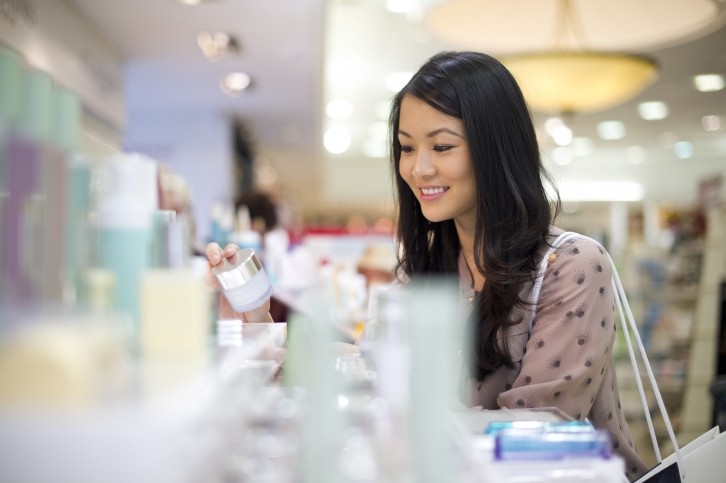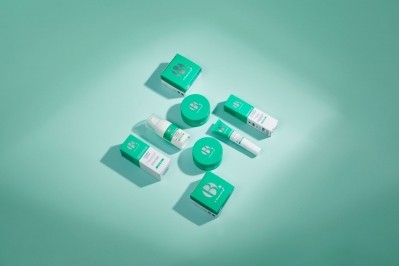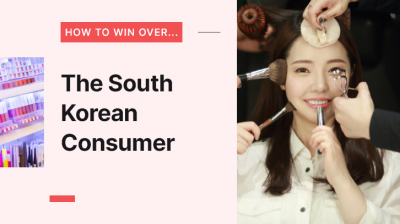Is your brand ready for the Single’s Day sales?

Every year, beauty and personal care businesses that operate in the Chinese market get prepped for Single’s Day – a shopping ‘festival’ that’s not dissimilar to the Black Friday concept in Europe and the US. The event, also known as ‘11:11’, will take place on 11th November.
Will Single’s Day still be a big event in 2023?
According to Elena Gatti, MD of China retail partner Azoya Europe, players like Douyin (China’s TikTok), Little Red Book (Xiaohongshu), and Kuaishou are posing challenges to traditional industry giants such as Tmall & Taobao and JD.com. She said that to stay relevant and competitive, these established platforms are being forced to rethink their strategies, focusing on enhancing their content and pricing. Merchants on these e-commerce platforms are eager to capitalise on the opportunity to clear out their inventory that has been reserved during the pandemic period.
“Furthermore, Chinese consumers, who have endured a three-year lockdown, are now eager to satisfy their long-suppressed demands,” she said. “However, their consumption patterns have evolved to become more rational, with a preference for products of similar quality. This shift opens the door for niche brands offering competitive pricing to enter the Chinese market and gain traction.”
Gatti also said that despite these changes, international beauty brands continue to dominate the Chinese market and maintain a significant market share of 60.13%. “A prime example of this dominance is the British fragrance brand Jo Malone, which secured top position on Douyin’s perfume sales list in 2023, showing its popularity among Chinese consumers,” she said.
Although consumers could potentially be more rational about their spending year, the Qixi Festival (Chinese Valentine's Day) in August this year witnessed impressive e-commerce sales.
“There will also be more connection between offline and online stores,” shared Gatti. “After lifting the zero-Covid restriction, offline channels recovered rapidly. To seize the offline traffic, merchants could transfer them to online store, like WeChat Group or Work, to build connection with customers, increase re-purchase rate and empower their loyalty.”
New opportunities for small and medium-sized brands
Giant e-commerce platforms are focusing on supporting small and medium merchants, which creates a great opportunity for niche brands to enter China at a lower risk and cost.
Taobao and Tmall, China's largest traditional e-commerce platform, has embarked on a new strategy called 'Return to Taobao, Users, and the Internet,' which is supervised by Alibaba co-founder, Jack Ma.
This strategy moves away from prioritising corporate to allocating traffic more equitably between large corporations and small- to-medium-sized merchants (SMMs).
According to Gatti, they are offering SMMs exclusive benefits such as lower registration thresholds, prominent marketing placements, and operational support, all aimed at ensuring a steady supply of cost-effective products.
JD.com is also actively supporting SMMs and launched the 'Spring Plan' at the start of the year, which includes marketing packages, free operational tools, reduced deposit requirements, and lower technology fees. "These enticing incentives have led to a 417% increase in the number of new merchants compared to the previous year," shared Gatti.
What are these shoppers seeking?
Foundation is the most in-demand cosmetic product, according to Gatti who cites CBN data, and said there is a noteworthy rising demand for nourishing foundation.
Insights from Zhiyi Tech, a data analysis platform of Tmall & Taobao, revealed a 10.9% increase in customer interest in cheek and lip cosmetics, which is expected to mean a heightened demand for lipsticks, lip glosses, and blushers.
Gatti also believed that the clean beauty trend will gain more traction in the skin care category. “As consumers increasingly prioritise the safety and natural qualities of beauty products, floral and herbal ingredients have surged in popularity, ranking among the top two welcomed elements, as revealed by Bazaar Beauty. Notably, products featuring herbal components saw a 36.1% increase in sales on Tmall & Taobao by the second quarter of 2023,” she said.
Functional skincare products are also expected to draw a larger audience. The top three skin care ingredient pairings discussed by consumers on Little Red Book (Xiaohongshu): Vitamin C+E for whitening and oxidation resistance, bosin (peptide) + hyaluronic acid for moisture and anti-aging, and hyaluronic acid + squalene for moisture and skin repair. These combinations are gaining prominence in the skincare arena, reflecting evolving consumer preferences.
Top tips for selling on 11:11
Gatti shared her wisdom for international brands that wish to participate in the Single’s Day shopping event this year:
1. Discover the untapped demands from Chinese consumers
This involves conducting a comprehensive analysis of potential competitors and dissecting their business models. Focus on entering market segments they may have overlooked or not yet ventured into.
2. Strengthen value proposition to capture customer attention
Highlighting attributes like cruelty-free practices, a commitment to ESG (Environmental, Social, and Governance) principles, and contributions to charitable causes can help establish a positive brand image and maintain customer loyalty.
3. Leverage short video & live stream
Chinese consumers are avid followers of digital trends and often perform thorough research on social media platforms such as Douyin (the Chinese counterpart of TikTok), Little Red Book, WeChat, and Kuaishou before making purchasing decisions. Take, for example, Douyin, boasting a daily user base of 780 million and an estimated 2022 revenue of $9.4bn.
4. Pay attention to KOC
Utilise Key Opinion Customers (KOCs) who have not only purchased your products but also hold a positive attitude towards them. Encourage them with incentives to share their experiences with friends or within chat groups, effectively expanding your customer base through word-of-mouth marketing.
Furthermore, merchants and brands may need to redistribute marketing investments, particularly towards mid-range Key Opinion Leaders (KOLs). The controversy surrounding Austin Li, a prominent Chinese KOL known as the 'Lipstick King,' who faced backlash for attributing low customer income, prompted a re-evaluation of consumer trust in top-tier KOLs. In response, businesses could consider a shift in advertising strategies, diverting funds towards middle-range KOLs who possess a positive, relatable, and consumer-friendly image. This adjustment aims to replace top-tier KOLs whose vast fortunes may alienate them from the understanding of common consumers.
5. Listen to your customers
Establish an active presence on social media platforms like WeChat to create a community where customers can provide feedback on your products. This feedback should be used to drive product improvements. Furthermore, consider adopting a co-creation approach to meet and exceed customer expectations.

![[Getty Images]](https://www.cosmeticsdesign-europe.com/var/wrbm_gb_food_pharma/storage/images/_aliases/wrbm_medium/publications/cosmetics/cosmeticsdesign-asia.com/article/2023/09/28/china-focus-latest-developments-in-china-s-booming-beauty-market/16744688-1-eng-GB/China-focus-Latest-developments-in-China-s-booming-beauty-market.jpg)








![Chinese study highlights mental health challenges in atopic dermatitis, emphasising holistic patient care. [Getty Images]](https://www.cosmeticsdesign-europe.com/var/wrbm_gb_food_pharma/storage/images/_aliases/wrbm_tiny/publications/cosmetics/cosmeticsdesign-asia.com/headlines/formulation-science/chinese-research-linking-atopic-dermatitis-to-mental-health-underscores-need-for-holistic-care/17040623-1-eng-GB/Chinese-research-linking-atopic-dermatitis-to-mental-health-underscores-need-for-holistic-care.jpg)








